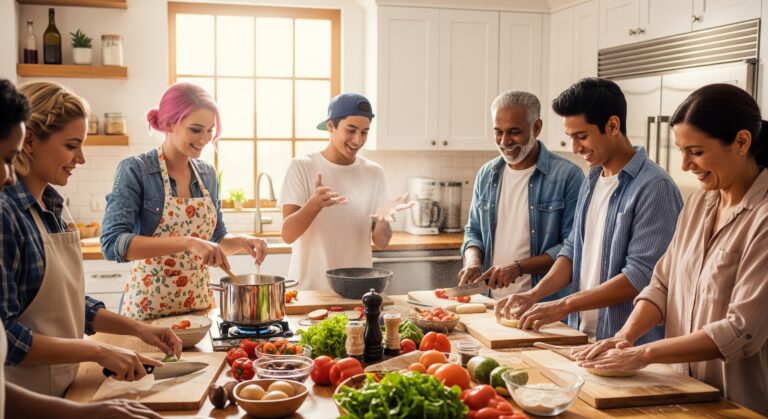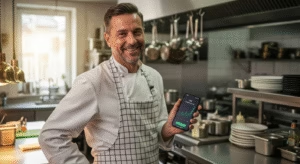Picture this: a teenage boy struggling with a can opener in the kitchen, while his sister effortlessly prepares a three-course meal. The father shows up and says “my boy, come over here, the kitchen is not for men”
This everyday scene reveals something profound about how society views cooking and gender. The conversation about who belongs in the kitchen has been going on for generations, but perhaps it’s time to ask a different question entirely: Who really belongs in the kitchen? and What does the kitchen really represent in modern life?
The truth is: The kitchen isn’t about gender. It’s about power, tradition, survival, and love. But society has been so focused on arguing about who should be cooking that the real meaning has been lost along the way.
Why Family Cooking Traditions Matter More Than You Think
Consider this common scenario: grandmothers who could make magic happen with just melon seeds, fish, and whatever vegetables they found at the market, yet never taught their grandsons to cook because “boys don’t need to know that.” Fast forward thirty years, and those same boys struggle to feed themselves properly as adults because nobody showed them that cooking was also their birthright.
This creates a complex situation: Kitchens carry the DNA of generations. In Nigerian homes, mothers pass down the secrets of perfect jollof rice. In Italian families, nonnas guard their pasta sauce recipes like state secrets. These aren’t just recipes—they’re cultural survival guides, wrapped in love and seasoned with identity.
But what happens when these traditions become exclusive? When society decides that only daughters deserve the inheritance of family flavors?
A Historical Perspective: The Woman and the Kitchen
Historically, the kitchen has been an extension of the nurturing role assigned to women. Across various cultures, women were expected to manage household meals, ensuring the family was well-fed. In African, Asian, and European societies, traditional cuisines were passed down from mother to daughter, reinforcing the idea that cooking was a woman’s heritage.
In ancient times, food preparation was an essential survival skill. Women were often responsible for gathering, preserving, and cooking food while men hunted or farmed. This division of labor laid the foundation for long-standing cultural expectations. The idea was further reinforced in the 19th and 20th centuries when societal norms defined a woman’s success by how well she managed her home, with the kitchen as her primary domain.
Breaking Stereotypes: The Modern Kitchen Revolution
With the rise of industrialization, urbanization, and gender equality movements, the traditional roles assigned to women have been questioned and redefined. More women have pursued careers outside the home, challenging the idea that the kitchen is solely their responsibility. Today, men are increasingly involved in cooking and domestic duties, with many embracing culinary arts both professionally and personally.
The professional kitchen is a prime example of this shift. While home kitchens were historically associated with women, the restaurant and fine dining industry were, for a long time, male-dominated. However, pioneering female chefs like Carme Ruscalleda, the only female chef with seven Michelin stars, and Mashama Bailey, an African American chef redefining Southern cuisine, have shattered glass ceilings, proving that cooking is not just a domestic duty but an esteemed profession. Nigeria’s own Tiyan Alile has also made significant contributions as a chef and founder of the Culinary Academy in Lagos, mentoring the next generation of chefs.
The Strange Double Standard Between Home and Professional Cooking
Here’s something that’ll make your head spin: While home kitchens were labeled “women’s work,” professional kitchens became boys’ clubs. How’s that for irony?
The restaurant industry—brutal, demanding, and historically masculine—somehow decided that the same skill that made women “natural homemakers” wasn’t quite good enough for the big leagues. Until women in the culinary world like Carme Ruscalleda said, “Hold my apron,” and proceeded to earn seven Michelin stars.
The reality is stark: How many brilliant female voices were silenced in professional kitchens? How many men missed out on the therapeutic joy of cooking because they were told it wasn’t “manly”?
Ironically, some of today’s most celebrated chefs, from Gordon Ramsay to Anthony Bourdain, have spoken openly about how their mothers’ cooking inspired their careers. The contradiction couldn’t be clearer.
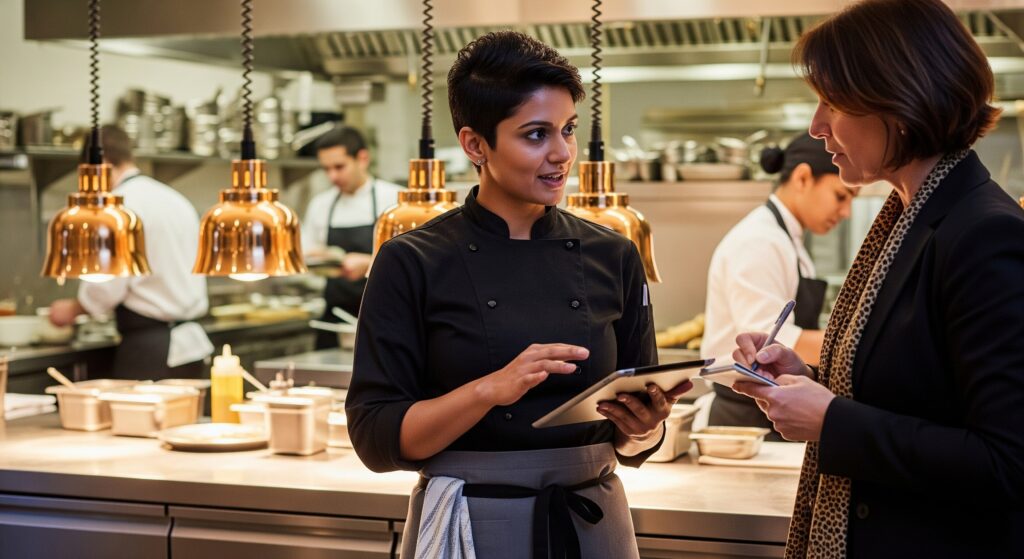
When Kitchen Expectations Become Too Much to Handle
Can we have an honest discussion?
Too many brilliant women burn themselves out trying to be the perfect mother, wife, and career woman while still being expected to produce Instagram-worthy meals every night. Marriages strain when one partner assumes the other will “naturally” handle all the cooking. Most times, you see the women suffer in silence to keep the agelong traditions passed down from their mothers and those before.
But this isn’t just about fairness—it’s about sanity. When society defaults kitchen responsibilities to one gender, tradition isn’t being honored; exhaustion is being perpetuated. Sometimes you find the sadness written all-over the woman’s countenance and there is the unsaid plea in her eyes “I need help in the kitchen.” It is worse if you are not married to a supportive spouse.
Yet there’s another side: many women find genuine power and peace in their kitchens, using cooking as meditation, cultural preservation, and entrepreneurial launching pads. The key difference? Choice.
How Modern Families Are Changing Kitchen Rules
The most exciting thing happening in kitchens today isn’t a new cooking technique—it’s the breaking down of barriers.
Today’s kitchen revolutionaries include:
1. Fathers teaching their sons that a man who can cook is a man who can take care of himself and others
2. Couples cooking together as a love language
3. Single people of all genders discovering that cooking for yourself is the ultimate act of self-care.
4. The most important of them all is that families are now employing helps and personal chefs to manage the kitchen and meals for them. This practice is not new but not just common to all as it was a practice among the wealthy and royalties.
5. Women turning family recipes into million-dollar businesses
Take chefs like Nigeria’s Tiyan Alile, who’s not just cooking—she’s building culinary empires and mentoring the next generation. Or everyday dads becoming TikTok sensations with their creative lunchbox ideas.
What Questions Should We Really Be Asking About Cooking?
Instead of “Is the kitchen a woman’s place?” let’s ask:
- What if society treated cooking like any other life skill? Like driving, doing the laundry, managing money, or basic home repair—something every adult should know regardless of gender? That way, it won’t be a struggle of who should be there but rather who wants to!
- What if communities celebrated food traditions without imprisoning people in them? Honoring grandma’s recipes while also empowering grandsons to carry them forward?
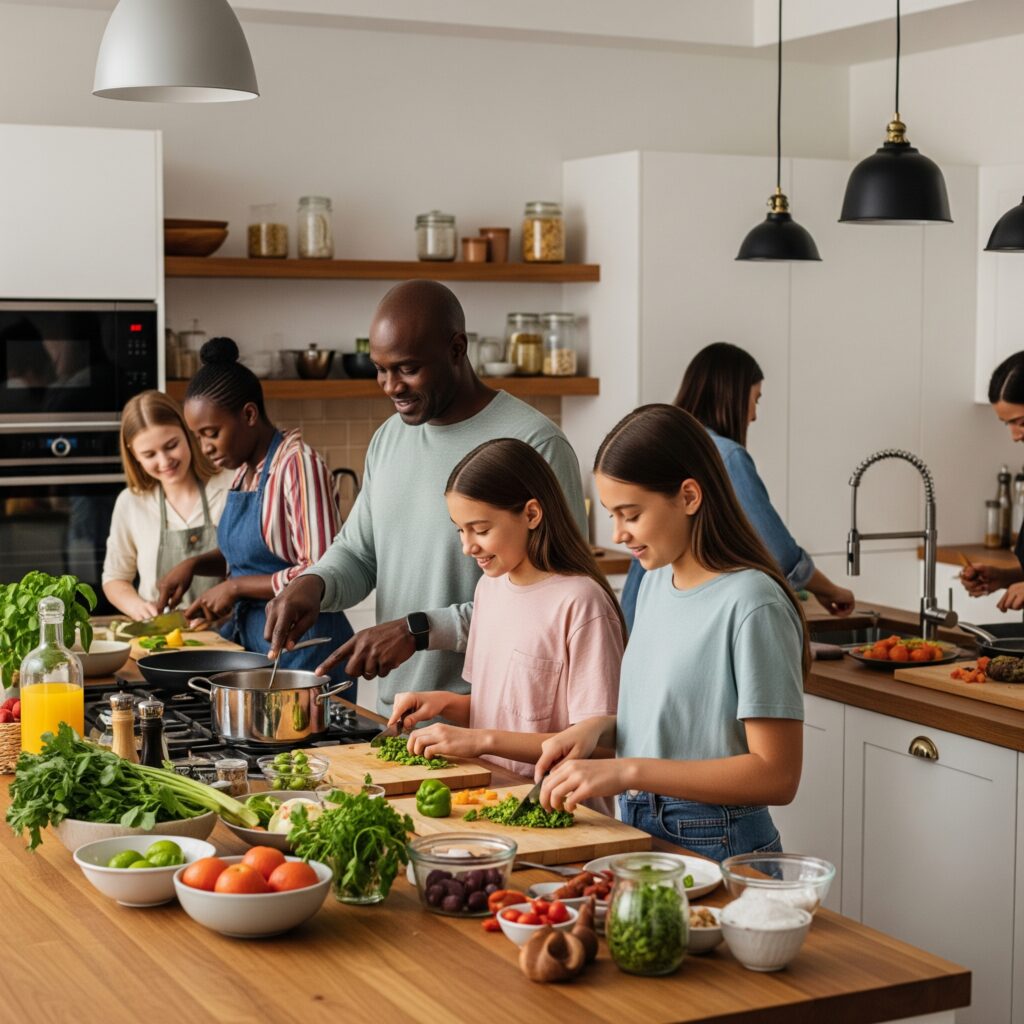
- What if families saw the kitchen as a place of connection rather than obligation? Where everyone bonds, creativity flows, and anyone can find their rhythm? As the lady of the house enters, the man of the house joins in with a smile on his face, followed by their kids(if they have one). Picture how it would look. The joy and warmth that it would spread all around. Like they say “A family that does things together, sticks together.”
The Simple Truth About Who Should Cook
The answer is straightforward: The kitchen belongs to anyone who wants to claim it.
- For women who find joy in cooking: That passion is valid. Nobody should diminish it as “just domestic work.”
- For men discovering their culinary voice: Welcome to the party. The kitchen has been waiting.
- For parents raising the next generation: Teaching all children that feeding people—including themselves—is an act of love and independence matters.
- For anyone who’s ever felt pressure to be someone else’s idea of a cook: Everyone gets to define what cooking means to them.
Why This Kitchen Conversation Matters for Everyone
The most radical change happens when people refuse to let anyone else dictate their relationship with food and cooking. Whether someone is meal-prepping for the week, experimenting with fusion cuisines, or teaching kids that ramen can be elevated with an egg and some vegetables—they’re participating in a quiet revolution.
This movement isn’t about taking anything away from anyone. It’s about expansion. More hands, more voices, more stories, more flavors.
It’s about creating a world where a little girl can dream of becoming a chef without being told she’s “just following expectations,” and where a little boy can learn to make his great-grandmother’s bread without anyone questioning his masculinity.
The Bottom Line About Kitchens and Gender
Every time someone cooks with intention—whether it’s a simple pasta for one or a feast for twenty—they’re participating in one of humanity’s oldest and most essential arts.
The kitchen isn’t calling just the women. It’s not calling just the men. It’s calling anyone who understands that food is love made edible, culture made tangible, and independence made delicious.
So the next time someone asks if the kitchen is a woman’s call, the answer is simple: “The kitchen calls to anyone ready to answer.”
What does your kitchen story look like? How are you rewriting the rules, one meal at a time?
Ready to join this conversation? Share this with someone who needs to hear it. Because the best recipes are the ones that get passed along.
P.S: Why you are wondering who the kitchen is made for, Chef4me gladly volunteers to help you shelf quality and delicious meals in your home.
Download the app and start booking now. Let Chef4me give you meals just the way you want it!
Author
-
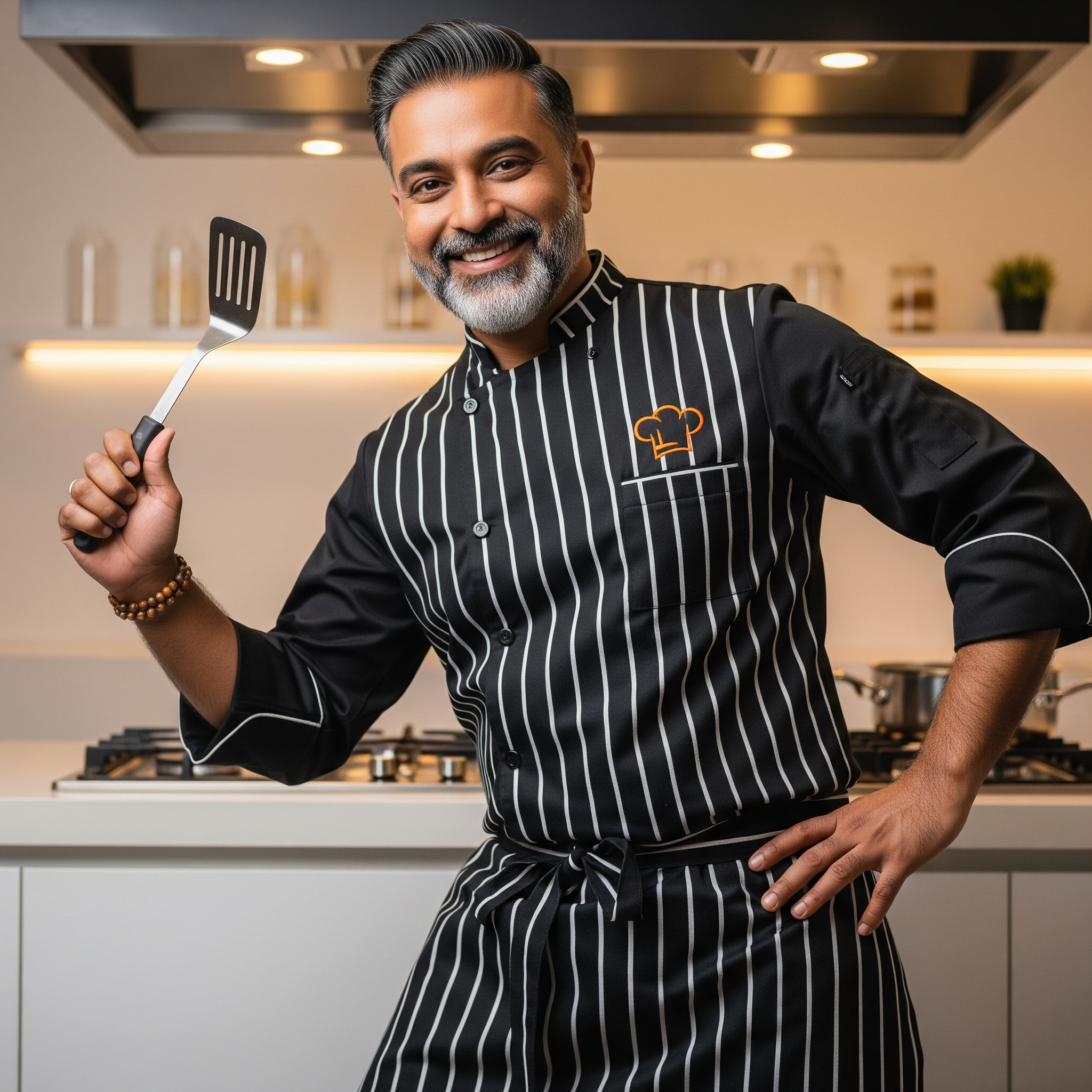
Jay is a creative and innovative spirit with a flair for coming up with engaging and helpful lifestyle content. On his happy days, he can spend his whole day making sumptuous delicacies while on the anxious days, he sleeps it out.
View all posts

